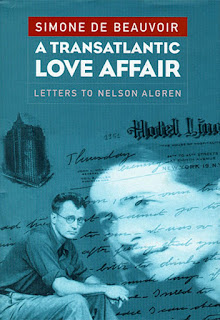Ashley M. Cain Reviews Allan Hollingurst's The Line of Beauty
The Line of Beauty
By Alan Hollingurst
London: Bloomsbury, 2005. 438 pp.
Alan Hollingurst’s The Line of Beauty, winner of the 2004 Man Booker Prize for Fiction, is a novel of winding, curvy delicacy, much like the “ogee” from which the title was derived. Hollinghurst leads his readers through 1980s London, the decade in which young Nick Guest transforms from a young, inexperienced college graduate just coming to terms with his public homosexuality, to a young adult immersed in the culture of drugs, money, and politics that saturate life in Thatcher era London.
Nick grew up in a mild, middle-class family in the south of England in a situation much in contrast to his college friend Toby Fedden. Toby grew up in Kensington Gardens, London with a father holding high political aspirations, a mother from a very titled, very wealthy family, and a wild sister with severe mental health issues. After Oxford, Nick moves into his friend’s family home, where he lives as a lodger while working on his doctorate at University College London. Whilst Nick’s parents spend their evenings watching TV and retiring by 9 pm, the Feddens are throwing galas, dancing with the Prime Minister, summering in France, and avoiding paparazzi. When he enters into the world of the Feddens, Nick learns slowly through his observations of their society to appreciate and then ultimately reject this elite world of excess.
Hollingurst’s prose alternate between subtle, gentle lines describing the nuances of emotional relationships (“There was something confidently patient about him, no lecherous effort or rush. But when he was spoken to it was as if they’d already been talking and there was an understanding between them” (166), to unmissable metaphors (the surname “Guest” for example) and surprising, almost violent depictions of Nick’s sexual encounters. Hollinghurst pulls his readers along the curves of the novel, having us learn the way things work in the Fedden’s world as Nick digests his experiences. We, too, are shocked by romantic and political affairs and we are also curious as to who knows what about whom as the plot becomes more and more complicated. While reading, we feel ourselves tucked away in the back room of the mansion with Nick, unsure of relationships and unsure of our status as “Guest.” Hollinghurst does a fantastic job of evoking empathy from the reader for Nick, even through his use of third person narration. This empathy, however, is not evoked consistently.
For example, Nick’s naivety evokes sympathy at times, but his condescending tone and inability to separate himself from the elitist attitudes he acquired at Oxford is frequently off-putting; it alienates and distances the reader from any real feelings of sympathy. Our expectations and feelings towards Nick are confused as Hollinghurst juxtaposes anonymous sex in public toilets in one scene with Nick’s snobbish musings on the shortcomings of Strauss in the next. Just as Nick is upset by the reality of the Fedden’s true feelings towards him, so are we, as readers, unnerved when we realize that we do not truly understand Nick.
Despite the somewhat awkward relationship readers may have with the narrator, The Line of Beauty is an enjoyable novel, with skillfully nuanced prose and complicated characters. Hollinghurst’s passionate depiction of Nick’s coming of age contrasted with his biting social commentary of London’s elite in the 1980s makes this tale both pleasurable and didactic.


